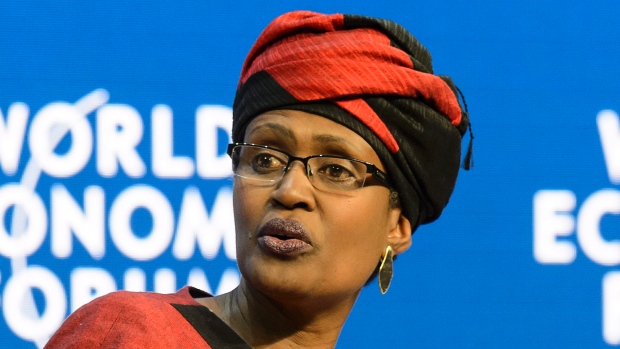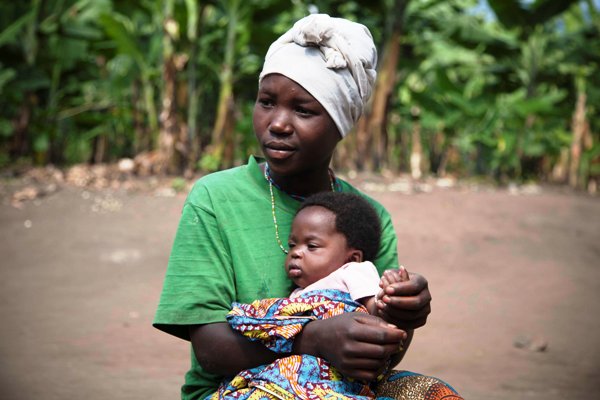Hoima farmer, Sayuni, tending cabbages. Photo by ActionAid Uganda
Uganda’s small-scale business players especially farmers have largely failed to supply to the oil and gas companies, both the government agencies and private sector players have admitted.
The farmers, who were targeted by the government campaigns supported by the civil society to prepare themselves for the “low-hanging fruits,” found themselves stuck with their products when they were turned down by foreign-owned firms.
But this has been blamed on the failure by the farmers to meet the required standards for this new market. Stanbic Business Incubator Limited (SBIL), which is leading the preparation of SMEs through training, says the multinational companies that are the lead investors in the industry, do not compromise on standards and safety for their workers.
SBIL Chief Executive, Tony Otoa says that in the beginning, the farmers were being taught the basics of farming and many invested without having the detailed knowledge of the new market.
However, recently, the organisations have re-designed their approach to the local content implementation to ensure that Ugandans access some of the opportunities. Otoa, for example, says that now they even consult the prospective buyers (the companies) on what they think should be the best products for the farmers to invest in.
He says that this has even meant that SBIL and its partners have mobilized and zoned farmers whom they provide with the inputs and other services, and monitor them through the whole process to ensure they do not default on the standards.
Agricultural supply is among the businesses that were ring-fenced for the local Ugandans under the National Content Policy that is aimed at ensuring that at least 30 percent of the total investments in the oil and gas sector is retained in the country.
Others include construction material supplies, security, hotel services, human resource management, crane services and transportation among other goods and other services that can ably be done by Ugandans, on top of many job opportunities.
However, since 2015 when the policy was drafted and later approved, complaints have persisted that it is not being implemented. The failure by some to access the market has created a feeling that the industry will not, after all, create the opportunities that were promised to Ugandans.
Private Sector Foundation Uganda Executive Director, Stephen Asiimwe says that talking about the opportunities widely is not enough because many Ugandans are still not convinced that the opportunities in the oil and gas sector are meant for them.
The Petroleum Authority of Uganda (PAU) has signed a contract for the consultancy on business development training with Stanbic Business Incubator Ltd as well as a Memorandum of Understanding with PSFU for entrepreneurial training and skilling SMEs.
The two deals now enable the three organisations to form a consortium under which the three will operate in a coordinated approach to prepare SMEs for business opportunities. The program will directly target 200 SMEs along the East African Crude Oil Pipeline project route between Hoima and Mutukula.
It will also benefit from the half-a-million-dollar (1.75 billion shillings) which was provided by the African Development Bank in November 2020, to boost business linkages on the East African Crude Oil Pipeline Technical Assistance project.
“The project’s overall objective is to help develop the capacity of local Uganda MSMEs along the EACOP, by enabling them to access new market opportunities, and building linkages with larger, national, regional and international companies,” says AfDB.
A similar grant was offered to Tanzania at the same time, but Tanzania’s bit was withdrawn with the Bank citing slow progress there. PAU says it has also sought the services of Makerere University to study the environment and advise on how the agriculture and oil and gas sector can mutually benefit from one another.
The Chairman of the Private Sector Foundation Uganda, Dr Elly Karuhanga warns that the companies that are intending to enter joint venture deals with foreign companies must also be trained on how this works.
The National Content Policy and Regulations provide that Ugandan companies that intend to benefit from bigger contracts than their financial and technical capacity, can make agreements with foreign ones.
However, Karuhanga warns that the possibility of foreign companies taking advantage and exploiting inexperienced Ugandan companies is there and that the government must prepare for that.
-URN





